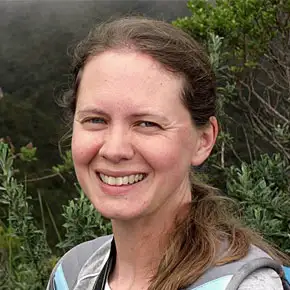I am starting my research into retiring overseas but I am still not sure what country I am going to move to. I am still finalising my budget and deciding what needs I have in relation to climate, healthcare, etc.
My question is what tips would your experts give to me as I plan my retirement overseas? What do I need to consider and look at?
Thanks for your help,
David
Suzan Haskins - IL Editor

Hi David,
I’d suggest you check out the book my husband, Dan Prescher, and I have written about exactly this topic. The book is called The International Living Guide to Retiring Overseas on a Budget: How to Live Well on $25,000 a Year. You can order it here.
In the book, we offer insights to the most important considerations when you move overseas. Budget and healthcare are on that list, of course. It’s really important that you ruthlessly profile yourself so you have a clear picture of what it will take to make you happy. For instance, it's pretty easy to be swayed by the "vacation lifestyle” and white sands and warm ocean waters, but beach towns don’t always make for the best full-time living situations. You need to think about your personal lifestyle requirements and come up with your list of "deal-breakers"…things your absolutely cannot live without. There are some other things to think about, as well, such as the emotional impact of leaving family and friends behind. The good news is that there are some very nice communities that are just a 2 to 3 hour flight from the States.
I’m not trying to avoid answering your question here, but I do think you’ll find everything you need (and more) in the book, including a look at dozens of overseas communities and the pros and cons of each.
Greg Seymour - IL Costa Rica Correspondent

Everyone approaches where to live a bit differently. This is the way my wife and I chose Costa Rica. The first thing we did was to remove all of the countries that did not fit our needs. Countries that were either too far from the U.S., too expensive for our budget, or had a culture we really were not interested in. For us, this removed Asia, Europe, and South America, from the equation.
Next we looked at each country and how they met our requirements. We were a bit flexible on some things but the most important items for us were: stable government, options for different climates, good internet, less expensive than the U.S., and welcoming to expats.
In the end we whittled the world down to a tidy basket of Belize, Panama, and Costa Rica. Belize fell off because of climate. And while financially Panama was a better choice, Costa Rica had more options as far as weather goes, had reliable internet, friendly people, and great healthcare (which wasn’t on our list). After a due diligence trip we decided it would be Costa Rica and moved a year and a half later.
Everyone has different priorities in what they are looking for in an overseas home, but this strategy can work for everyone. By narrowing down to a handful of countries you can save time by only researching deeply those options you know meet your criteria.
Jackie Minchillo - IL Coastal Costa Rica Correspondent

The single most valuable thing we did in our discovery process was network and talk with other expats who were already living in Costa Rica. We did this mainly by searching for Facebook groups labeled as aiming toward expats in Costa Rica. We also found some people just through Google searches that had started blogs we liked and reached out via their contact page.
Direct advice from people who have been through exactly what you're considering is invaluable.
Also I would say don't be jaded by pretty scenery, climate, or any one element on its own. You need to try and dig in and find out as much as you can about the nitty gritty daily life details of any given area to see if it will work for what you're looking for. No place is perfect - so I would say more important than looking for the things you like, I would seek out what the downsides of place are and then decided if those are things you can deal with.
In terms of budget specifically, you can usually find average costs of services and products, but keep in mind that most people's budget comes down to their lifestyle. Things like how often they're traveling, how often they're eating out and at what types of restaurants, etc. In Costa Rica specifically, keep in mind that people who choose to live at the beach should expect higher utility costs, as most people find it necessary to run the air conditioning regularly and this drives higher electricity costs. Another huge budget factor is whether or not you'll choose to have a car. If you're looking to keep a tight budget, ask questions about public transport in different areas and choose a place where you know it will be easy to go without a car.
Wendy Dechambeau - IL Ecuador Highlands Correspondent

Hi David,
Finalizing your budget is going to be your first priority. Once you know how much you can afford to live on you can start looking at countries that fit that need.
Here are things that were important to me and/or most of the expats I speak with. When you answer them be honest with yourself and give careful consideration to each one.
Do you prefer cities, small towns, or something in-between?
Do you need/want to be on or near a beach?
Can you handle living at high altitude?
What kind of climate do you want/need?
Do you need to be near state-of-the art medical facilities?
Is it important to have a large expat population in your new home?
Are you willing to learn a new language and/or live in a non-English-speaking country?
How far are you willing to live from the U.S. or Canada?
Those are the basic questions you should be asking yourself and then think about anything you feel you just couldn't deal with, i.e. high humidity, slow internet, or lack of your favorite candy bar and research which countries could be right for you.
Jim Santos - IL Coastal Ecuador Correspondent

Hi David,
I think it sound like you are already doing the right thing by researching your destinations. The best advice I can give you is to do research just as carefully on yourself.
What I mean by that, is to take a long, honest look at yourself and ask yourself what you want out of life. What exactly is it you want from retirement? How do you want to live? If you are planning this move with a partner, make sure you are both on the same page.
Some things to consider:
Are you someone who needs a strong expat community around you, or are you comfortable exploring on your own?
If you do not speak the native language, are you willing to learn? Keep in mind, no one expects you to be fluent, just how far are you willing to go?
Is it important to you to have a car?
Do you have any special health or dietary needs?
What are the things you feel you need to be happy and comfortable?
Once you have these answers, it is easier to narrow down your search. You can use International Living for more information, and check out social media, or even YouTube, to find out more. Then nothing beats first-hand experience. Arrange to at least visit the places that appeal to you, ideally try to rent for a few months at a time to really get the feel for what it would be like.
Also, remember it doesn’t have to be forever. Many new expats decide to try another city, or even another country, after they take that first big step.
Happy hunting!
Jim Santos
Ann Kuffner - IL Belize Correspondent

David,
Making a move overseas is a major life transition. So make plans to visit each country you are interested in and spend enough time in those of high interest so that you really get a feel for them. Before visiting a new location do a Google search of blogs and forums for that area. Scan them to get a sense of what it's like and what expats who live there have to say about it. These days there is an amazing amount of info on the internet. You'll find a broad variety of impressions that will give you a good start. And, of course, read the articles that are posted on the IL website for each country, as there are many of them.
The first question I have is whether you are willing to learn another language. If you prefer to stick with English that will quickly drop out many of the lovely locations that IL editors recommend.
Another major item to honestly consider is healthcare. If you have any health issues it's wise to pick a country, and location within that country, where you will be near a quality hospital and medical specialists. This becomes more important as we age. And some of the nice towns we cover do not have 24/7 hospitals, or medical specialists nearby.
When you visit a place on your shortlist you'll find that at times you'll have an immediate gut level reaction to it, positive or negative. A country that sounds great on paper may not feel right for you when you are on the ground. For instance, I've met with International Living readers who visited Ambergris Caye. Invariably they fall in love with the sea, the spectacular view, and the island vibe when they arrive. But some have been quickly put off by the traffic and congestion in San Pedro Town, or the high prices. They decide within a few days that Ambergris Caye is not the island for them.
Cost of living is usually a major deciding factor for expats when choosing a new overseas location. We IL editors regularly update cost of living estimates for the locations we cover overseas. They get updated every 2-3 years. But your actual cost of living could vary significantly from our estimates, depending on your lifestyle and expectations. So when you visit a new international location of interest be sure to check out the cost of groceries, restaurants, bars, rents, healthcare, and utilities ,so that you'll have a realistic sense of what your cost of living will be. Also talk to expats who have lived there for a while. I know expats who own a home and comfortably live on $2000/month here on Ambergris Caye. But others tell me they spend $4000-$5000/month. These are the expats who don't like to cook, and frequent tourist restaurants regularly, rather than the much less costly Belizean cafes.
Last of all, get a sense of the local population. Are they friendly and helpful? Do you feel comfortable interacting with them? When I started visiting Belize I was immediately impressed by the good nature and helpfulness of the Belizean people. I immediately felt very welcome here. And yet other expats who left Belize after a year or two have complained on forums that they felt that Belizeans resented them, as foreigners. Possibly they were living in a small village where most people were related... Certainly, in the 17 years I've been coming and going from Belize I've never had that experience. But it doesn't make sense to settle in a country where you don't feel welcome.
Ann Kuffner
Jason Holland - IL Roving Latin America Editor

It sounds like you're taking some great first steps here. Figuring out your budget and determining your specific needs is key as you do your research. I would recommend that you do as much reading as you can with resources like International Living. Joining Facebook groups related to the destinations you're considering will also give you plenty of on-the-ground insight.
One thing you should keep in mind is that even within countries there is a big variety of climate, lifestyle, climate and convenience depending your exact location. So once you've narrowed down your list to certain countries, then you want to start narrowing down which regions or even towns you are interested in.
For example, in Costa Rica, the mountain towns of the the Central Valley offer a rural lifestyle and very temperate climate. But the Caribbean coast is warm and humid, undeveloped... and quite bohemian. It's almost like a different country! You'll find this level of difference in most countries. So definitely something to keep in mind. And this means you should also not rush to buy any property. Go on some scouting trips to your top countries, regions, and towns. Get to know them in person before making any decisions.
Best of luck! I'm sure you'll find your perfect spot.
Bonnie Hayman - IL Nicaragua Correspondent

Hi David,
Yes, it's a huge step to move abroad, but it doesn't have to be stressful. First, take the quick quiz that International Living has that asks some critical questions and points you in the direction of a country you might like.
Next, make a list of things you MUST have in your new country, things you would like to have, and things that would be a deal breaker (like if the climate was 100 degrees every day of the year or it rained non-stop for 6 months, etc.). Then go on the Internet and start reading about the countries you like. Tick off the boxes on your list for each country and you will begin to narrow down your choices.
Go to one of International Living’s retirement conferences like the one in Las Vegas on October 10th this year. There you can meet those of us who actually live in the countries you like and we can give you an even more detailed description of actual life abroad and we will be able to answer all of your questions.
Finally, let's say you've narrowed it down to three countries. Plan to visit all three - and stay as long as you can. A one-week vacation will only be the tip of the iceberg. It would be better to stay longer, get to know some of the expats, see if you like the climate (it's always a good idea to visit during the WORST weather month, not the best - to see if you can handle t), the culture, the lifestyle, etc.
And then take a deep breath...and move! You'll be glad you did. Good luck to you!
Edd Staton - IL Cuenca Correspondent

You're on the right track, David. I encourage you to continue developing a realistic budget and to keep asking yourself, "What do I want?" As you hone in on the attributes you are seeking in your ideal location abroad, the best options will reveal themselves to you.
Avoid "vacation mentality"--thinking that the one week you spend at a beautiful spot during peak season is your dream 24/7/365 life. Maybe it is, but often the magic of such places fades after the honeymoon phase ends.
In fact, if the retirement spot you pick out has seasons, I advise you to plan your investigative trip during the "worst" time of year. If you're fine with the weather then, think of how much you'll adore it the rest of the time!
Steven King - IL Cambodia Correspondent

Dear David,
If you are considering Southeast Asia as a potential area of interest then I suggest you draw up a list of key factors most relevant to you in making your decision.
Then you should research carefully the different variables for each of the attractive countries in the region e.g. Cost of Living, Ease of Visa Regulations, Health & Dental Care Options, Suitable Parts of the Country to Relocate to, Language and Weather Considerations.
Cambodia could well be a suitable option for you thanks to its extremely open annual residency visa rules, its selection of different colonial cities and coastal provinces where you could comfortably live as well as its very attractive cost of living where $1,500 to $2,000 is considered more than enough to live a luxurious lifestyle.
However, you should check carefully about each country before making any decisions, especially if you have any healthcare concerns or require specialist treatments. Your health should always come first!
Good Luck with your Decision!
Steven
Wendy Justice - IL Vietnam Correspondent

Hi David,
Here are a few things that come to mind:
Do you want to move to a country where English is widely spoken? Do you have a second language or are you willing to learn one?
Is having good public transportation important to you or do you plan to drive?
Do you need to be near international-standard medical facilities?
What type of lifestyle appeals to you? Are you a city person or do you prefer a small town or rural lifestyle?
Do you want to be near a beach or other outdoor activities?
Are there certain products or amenities that you can't live without? If so, consider whether your ideal retirement haven would have those items.
Do you like the thought of fully immersing yourself in a new culture or do you envision yourself living in an expat enclave (or something in-between)?
I think it's important to consider climate, too. Maybe you would like to live somewhere with four distinct seasons, or someplace with "eternal spring," or you are from a cold climate and would like to be somewhere that it's warm every day of the year.
How important is it for you to have easy access back to the U.S.? If you plan to return every few weeks or months, you'll want to consider the time and expense involved.
Do you want to work part-time or full-time? If so, what are the local regulations? Some countries allow foreigners to work if they have a retirement visa or permanent residency and others don't.
Good luck with your planning.
Wendy
Steve Lepoidevin - IL Thailand Correspondent

Hi David,
This is Steve LePoidevin, IL's Thailand correspondent. That is a good question!
As you begin to think about retiring abroad, just remember that you don't have to make a final decision right away. I know many people, including myself, who have lived in several countries before finally settling down. And others who have continued the roving retiree lifestyle.
Certainly, the big consideration is probably healthcare, especially if you have any health-related issues. Thailand has a great medical system but there is no public healthcare insurance available to foreigners. In other countries, there are healthcare perks available to expats. This is definitely something you need to research when choosing a place to live.
For us, the cost of living has always been important. It's obviously important to be able to satisfy the financial requirements of a retirement visa. Many places have a very low cost of living if you live like a local and only purchase items at the local markets. But how much does this increase if you like dining out, having evening cocktails, and plan on buying some imported food items? Add on a monthly medical insurance policy and the real cost might increase substantially.
Also, do you want a good network of expats living in the area or are you comfortable being an "expat pioneer"? Are you comfortable learning a new language or do you want to move somewhere where you can survive with English only?
A hot climate is nice but just remember that you may end up having a large AC bill at the end of each month if you cannot acclimatize!
There are so many things that go through your mind when thinking of moving abroad. But more important than thinking about it is just doing it! I can't emphasise this enough. Get rid of your stuff or store it away for awhile until you decide to live somewhere long-term. Narrow down your choices to two or three countries or cities. Pack a couple of suitcases and go live in each one for awhile. There is no rush or need to settle in one place if you are retired. Once you have lived abroad, your outlook on everything will change.
At some point, you will decide,"This is where I want to live!". The hardest part is leaving the familiar behind and just going for it.
Cheers,Steve
Kirsten Raccuia - IL Southeast Asia Correspondent

Hi David,
Moving abroad takes a lot of research and patience to find the right place.
1. There is no perfect place. It doesn’t exist, so prioritize your needs/wants list and try to check off as many as you can. Be flexible but don’t settle.
2. Travel to your top 3 places and spend as much time there as you can before making the decision.
3. Try to go to your destination in the touristy/wet season. If you like it when it’s the wettest or most touristy, then you will probably like it when it’s not.
4. Rent for a year before you consider buying a home, just to make sure you are in the right neighborhood.
5. Join as many expat groups and forums in your destination BEFORE you get there. You will get a sense of what life is like there before you even step foot on land.
6. Before moving to Penang, Malaysia, we went to an International Living conference about moving abroad that really opened our eyes. It may sound silly, but you don’t know what you don’t know-meaning there were so many things that we never even thought of that were addressed. The conference made a huge impact on our decision.
7. Don’t rush into any decision.
Hope this helps! Good luck!
Nancy Kiernan - IL Colombia Correspondent

Hi David,
Since you are still analyzing and deciding to which country you will retire, let me give you a few things to think about that will apply to your move, regardless of where it is.
One of the great things about living outside of your birth country in this era is that the internet makes staying connected so much easier. Set up all of your bank statements, credit card statements and other financial documents to be delivered via email, or online login. If you receive any checks on a regular basis such as dividends, have them electronically deposited into your bank account rather than mailing you a paper check. Also, scan and save to a Google Drive (or other Cloud sharing location) all important personal documents.
For the paper mail that you will still receive, I suggest setting up an account with a mail forwarding service. There are several very good ones, I use St. Brendan´s Isle in Green Cove Springs, Florida. You get an actual address (not a PO Box) so you can receive packages. They scan the outside of your mail and send you a notification by email. You log on to your account and can see what arrived. You have the choice of deleting it (if it´s junk mail), holding it (if you want it shipped to you later), or scanning the contents into a PDF that you can save to your computer.
Check with your current credit and debit card companies to see if they charge foreign exchange fees or foreign ATM fees when used outside of your home country. If they do, then look for those who don´t. Apply for them BEFORE you move out of your country. I personally have a Charles Schwab checking account that doesn´t charge any of those fees. I have been withdrawing money from that account here in Colombia for 4 ½ years with no problems. I also have a Capital One credit card that also does not charge foreign exchange fees on purchases. Right now the Colombian peso to US Dollar exchange is so favorable, I charge almost all my purchases and save about 25% from a couple of years ago when the rate was not as good.
And lastly, I stay connected to my family back in the US by Skype. Skype to Skype calls are free and the video aspect is almost as good as being there in person. I have had tours of my daughter´s new apartment, been part of birthday parties and also been able to show family and friends real-time tours of my adopted country of Colombia.
I wish you the best as you continue your research.
Nancy
Related Articles
The World’s Best Places to Retire
